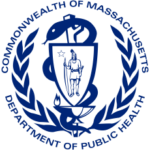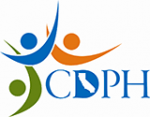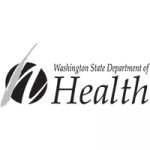Overview
Position Overview
The Illinois Department of Public Health (IDPH) is seeking a Manager for its Infection Prevention and Training Unit within the Healthcare Associated Infections and Antimicrobial Resistance (HAI/AR) Program. Plans, directs, and implements quality improvement initiatives to promote appropriate infection prevention and control practices in healthcare facilities across the state. Provides technical assistance to healthcare facilities to improve surveillance and case reporting for HAIs. Participates in developing grant applications for the HAI/AR Program and provides programmatic oversight for grants related to building healthcare facility infection prevention and control capacity and capability. Engages with Department staff and external groups on Infection Prevention & Control data reports and public reporting. Serves as working supervisor.
Job Responsibilities
Serves as Unit Manager for the Infection Prevention and Training Unit.
• Establishes quarterly and annual goals and objectives for quality improvement activities to address healthcare associated infections (HAI) in consultation with section leadership and alignment with state and national priorities.
• Directs and oversees implementation of HAI quality improvement collaboratives and campaigns.
• Reviews and applies surveillance and other data to plan and evaluate program activities.
• Evaluates ongoing program operations and procedures providing modifications as warranted in connection with State and Federal legislative mandates and guidelines.
• Recommends, implements, and participates in evaluation of policies related to HAE prevention in collaboration with section and division leadership and other stakeholders.
• Establishes and maintains working relationships with quality improvement and infection prevention stakeholders at the community, state, and national levels to monitor current and emerging issues and promote alignment of work with partners.
• Participates in workgroups related to HAI quality improvement and infection prevention.
Provides technical assistance to healthcare facilities to improve surveillance and case reporting for HAIs.
• Travels to perform in-person and occasionally remote validation of HAI data submitted to the National Healthcare Safety Network (NHSN).
• Develops facility-specific recommendations and reports based on validation results.
• Collaborates with other program staff to develop and implement trainings to improve HAI case classification and address other NHSN reporting challenges.
• Facilitates efforts to onboard new healthcare facilities to NHSN.
Provides technical assistance and consultation related to infection prevention and control.
• Provides oversight in planning and implementation for the Centers for Disease Control and Prevention’s Project Firstline to train frontline healthcare workers.
• Serves as subject matter expert on quality improvement strategies for healthcare facility infection prevention and control programs.
• Oversees and performs infection control assessments and response, using data to target facilities.
• Collaborates with healthcare facilities to evaluate infection control risks and identify control measures specific to those needs.
• Participates in intra-departmental planning, guidance development, and policymaking to improve infection prevention capability and capacity across healthcare settings, in line with state requirements and Centers for Disease Control and Prevention (CDC) guidelines.
• Assists with statewide infection prevention and control policy and procedure review, including updating policies as needed based on regulatory standards and evidence-based guidelines.
Serves as working supervisor:
• Assigns and reviews work
• Provides guidance and training to assigned staff
• Counsels staff regarding work performance
• Reassigns staff to meet day-to-day operating needs
• Establishes annual goals and objectives
• Approves time off
• Prepares and signs performance evaluations
Participates in developing grant applications for the HAI/AR program.
• Develops workplans and performance reports in line with program priorities and federal grant requirements.
• Provides programmatic oversight for assigned grants and contracts.
Performs other duties as required or assigned which are reasonably within the scope of the duties enumerated above.
About Illinois Department Public Health
In Illinois, if you have eaten at a restaurant ... required hospital or nursing home care ... vacationed at a campground or swam at a public beach or pool ... drank a glass of milk ... got married or divorced ... had a baby, the Illinois Department of Public Health (IDPH) has touched your life in some important way.
Assuring the quality of our food, setting the standards for hospital and nursing home care, checking the safety of recreation areas, overseeing the inspection of milk producing farms and processing plants, maintaining the state's vital records and screening newborns for genetic diseases are just some of the duties of IDPH.
In fact, IDPH has 200 different programs that benefit each state resident and visitor, although its daily activities of maintaining the public's health are rarely noticed unless a breakdown in the system occurs. With the assistance of local public health agencies, these essential programs and services make up Illinois' public health system, a system that forms a frontline defense against disease through preventive measures and education. Public health has provided the foundation for remarkable gains in saving lives and reducing suffering. Today, life expectancy is 80 years for women and 74 years for men compared with fewer than 50 years at the at the beginning of the 20th century.
In the past, IDPH directed state efforts to control smallpox, cholera and typhoid, virtually eliminated polio, reduced dental decay through fluoridation of community water supplies, and corrected sanitary conditions that threatened water and food supplies.
Today, IDPH has programs to deal with persistent problems that require continued vigilance – infectious diseases, such as AIDS (acquired immunodeficiency syndrome), HIV (human immunodeficiency virus), SARS (severe acute respiratory syndrome) and meningococcal disease; foodborne and communicable diseases, such as E. coli 0157: H7, monkeypox, salmonella and West Nile virus; vaccine preventable diseases; lead poisoning; lack of health care in rural areas; health disparities among racial groups, breast, cervical and prostate cancer; Alzheimer's disease; and other health threats -- sexually transmitted diseases, tobacco use, violence, and other conditions associated with high-risk behaviors. In addition, IDPH has been charged with handling the state's response to the COVID-19 pandemic and the threat of bioterrorism.
IDPH, which is one of the state's oldest agencies, was first organized in 1877 with a staff of three and a two-year budget of $5,000. IDPH, now has an annual budget of $2.9 billion in state and federal funds, headquarters in Springfield and Chicago, seven regional offices located around the state, three laboratories, and 1,200 employees.
IDPH is organized into 12 offices, each of which addresses a distinct area of public health. Each office operates and supports numerous ongoing programs and is prepared to respond to extraordinary situations as they arise.




